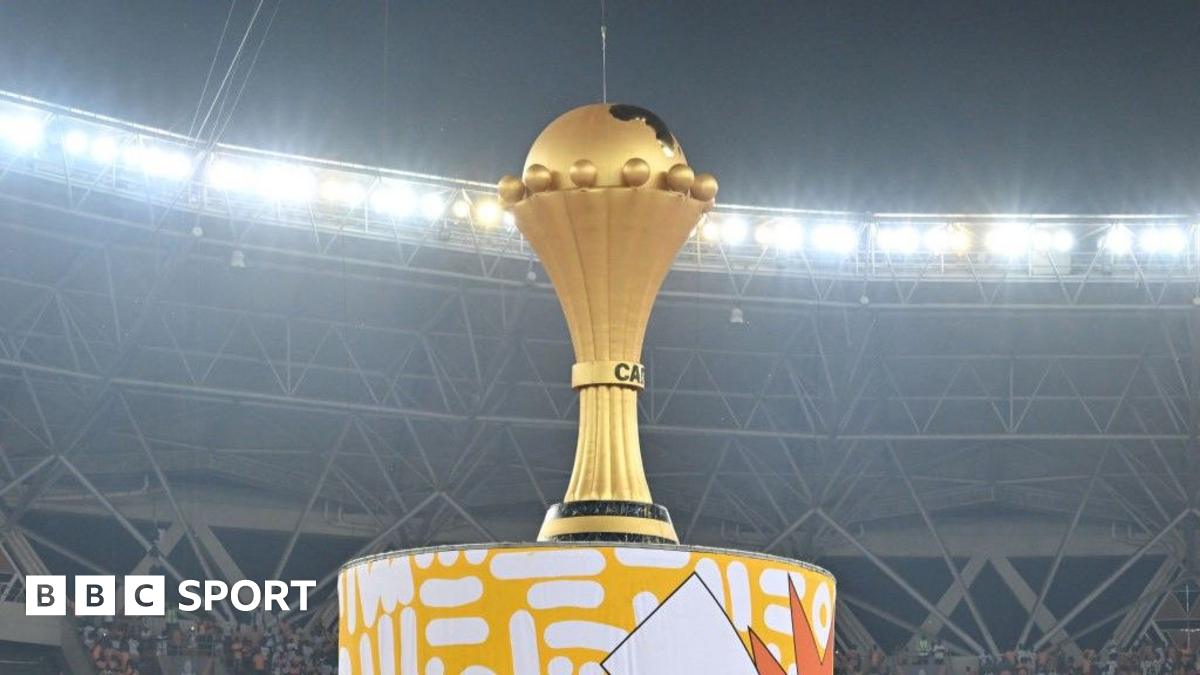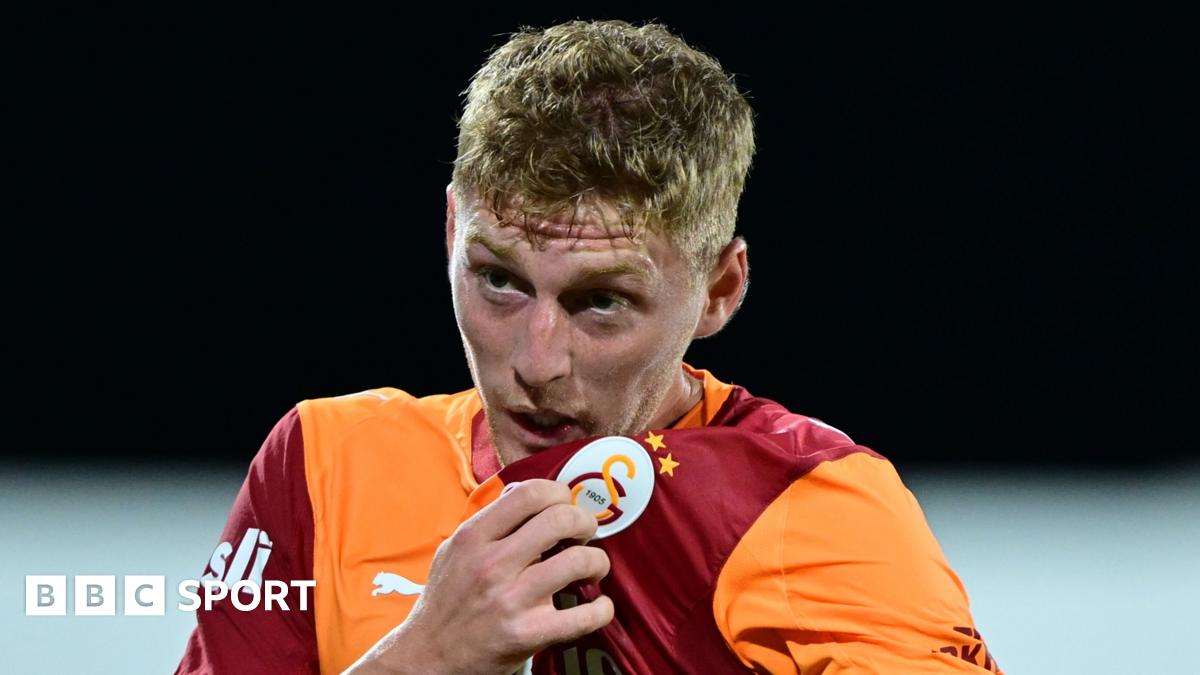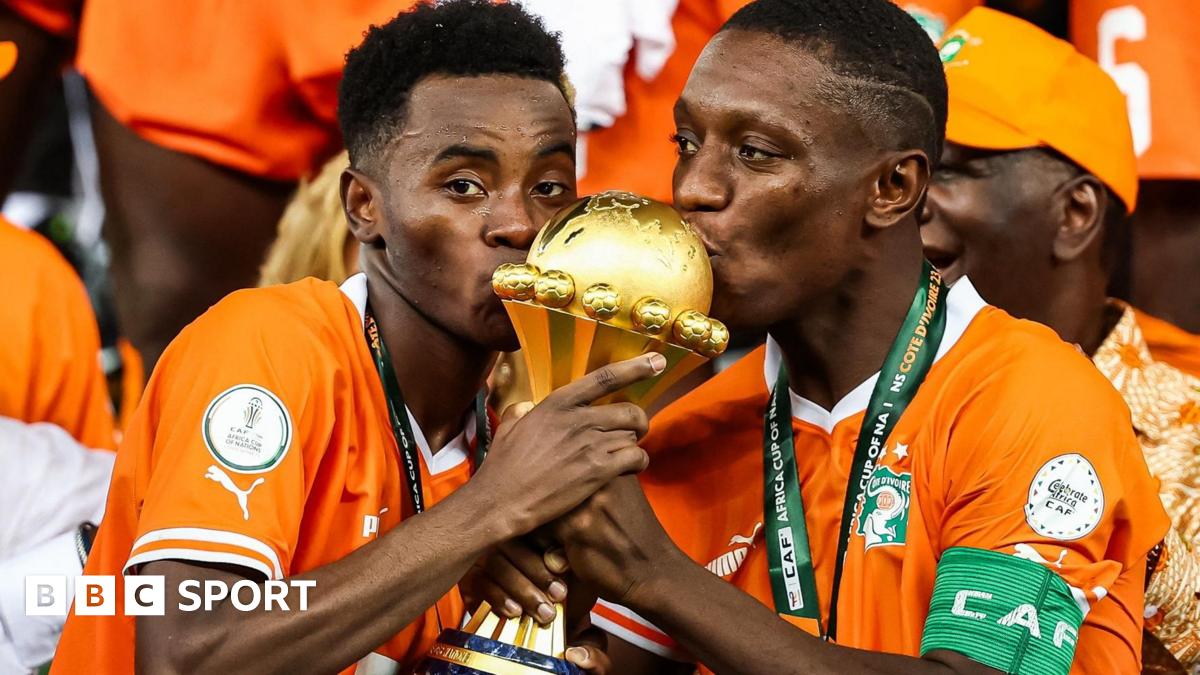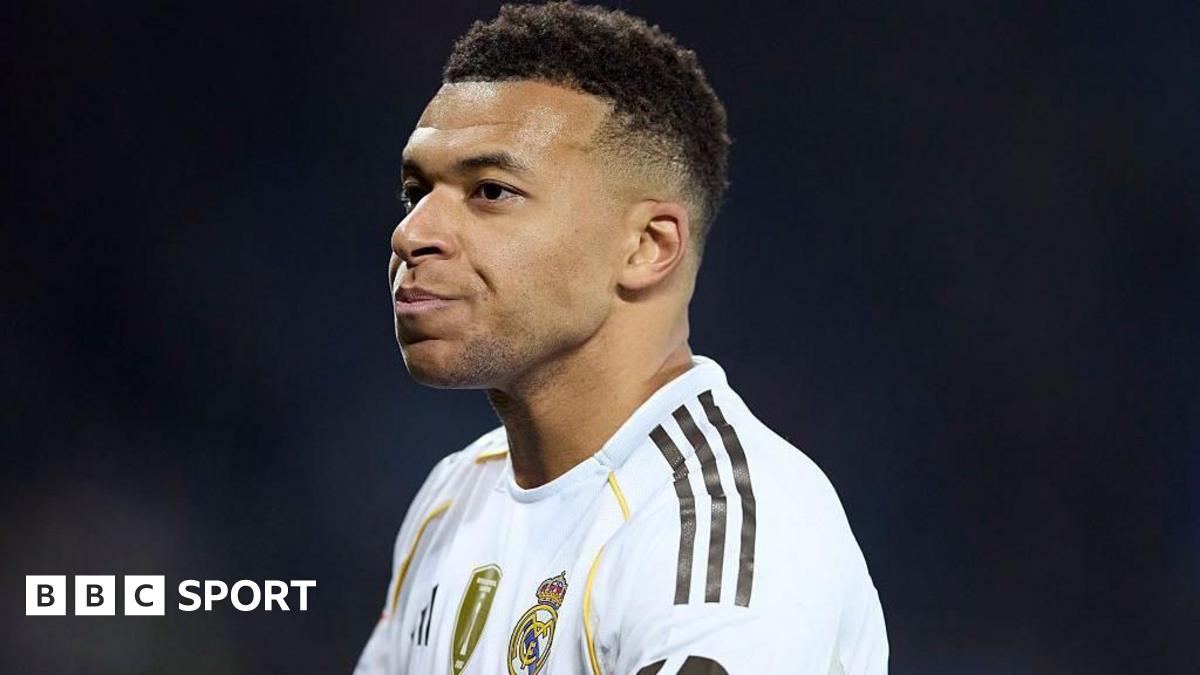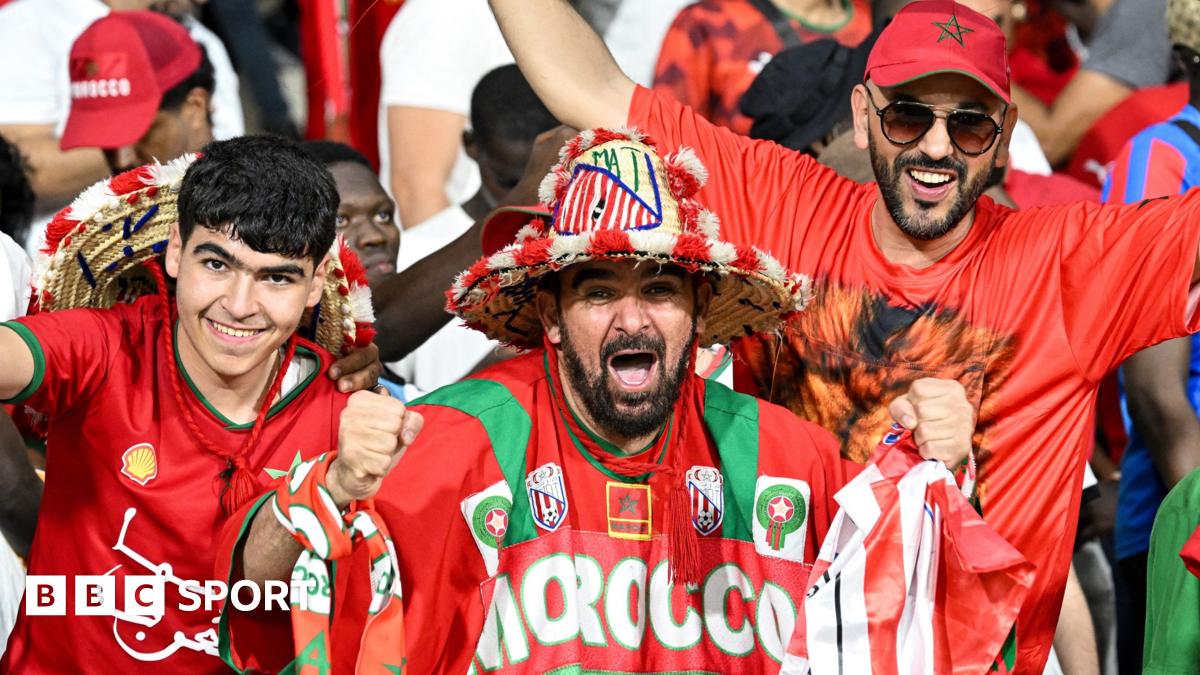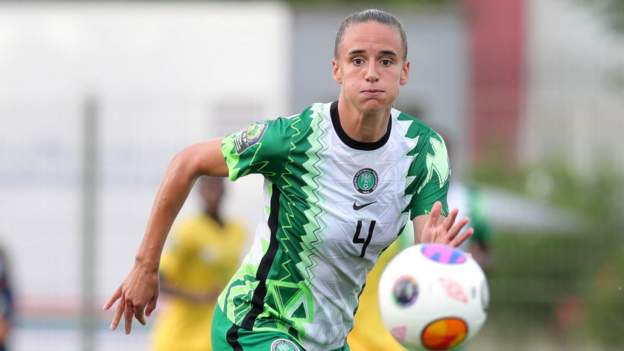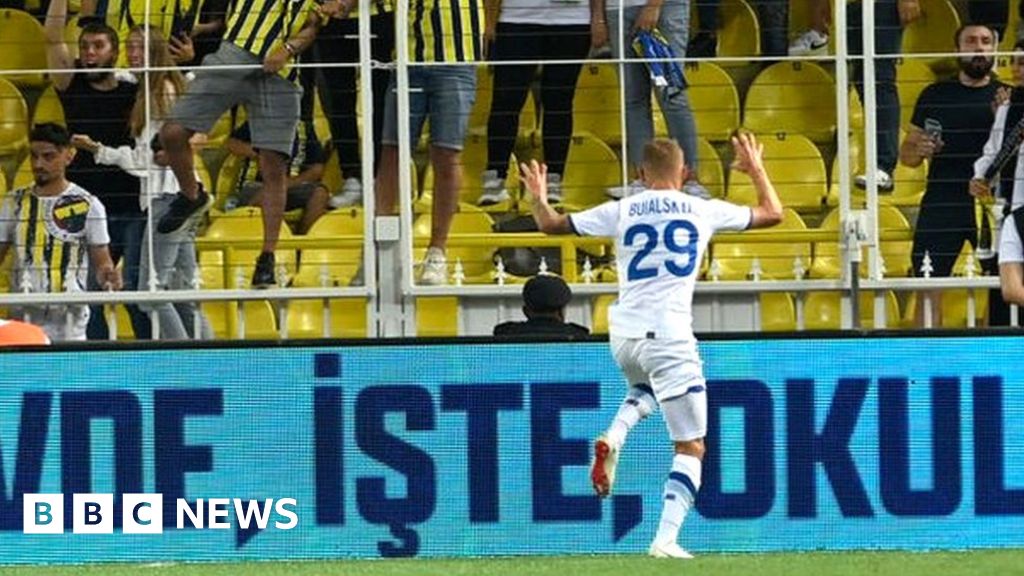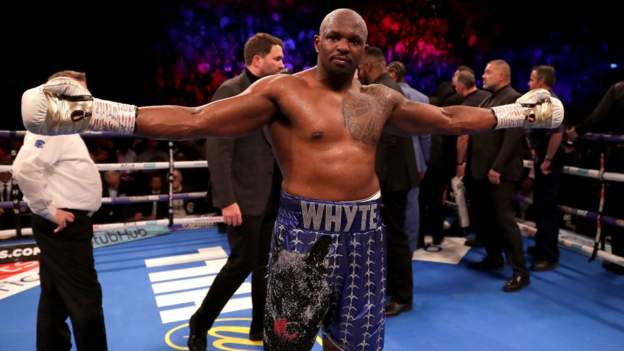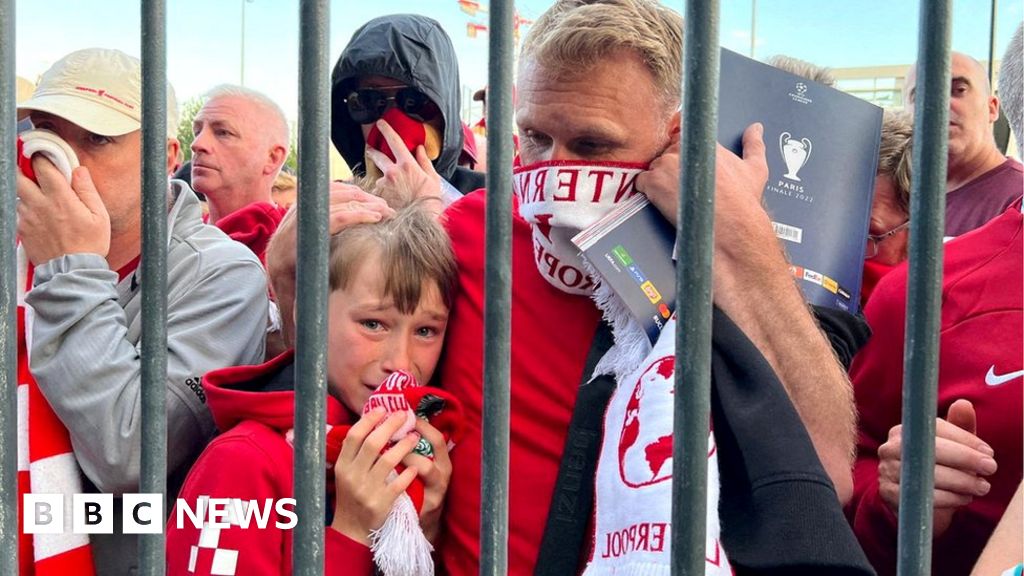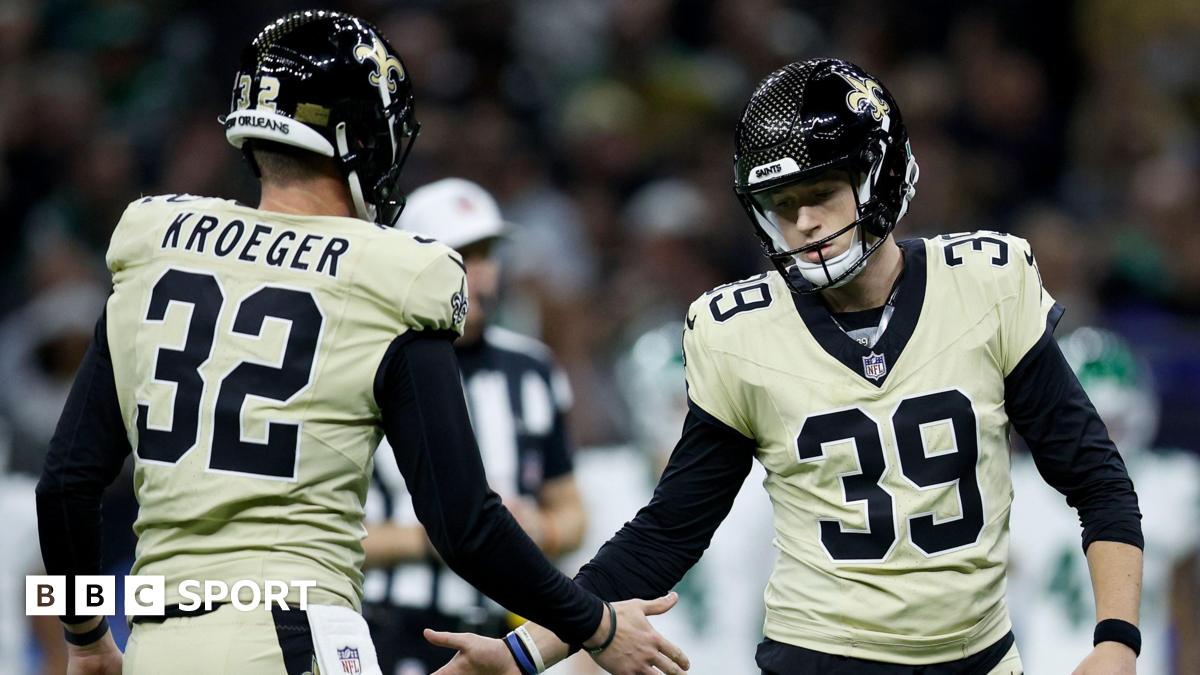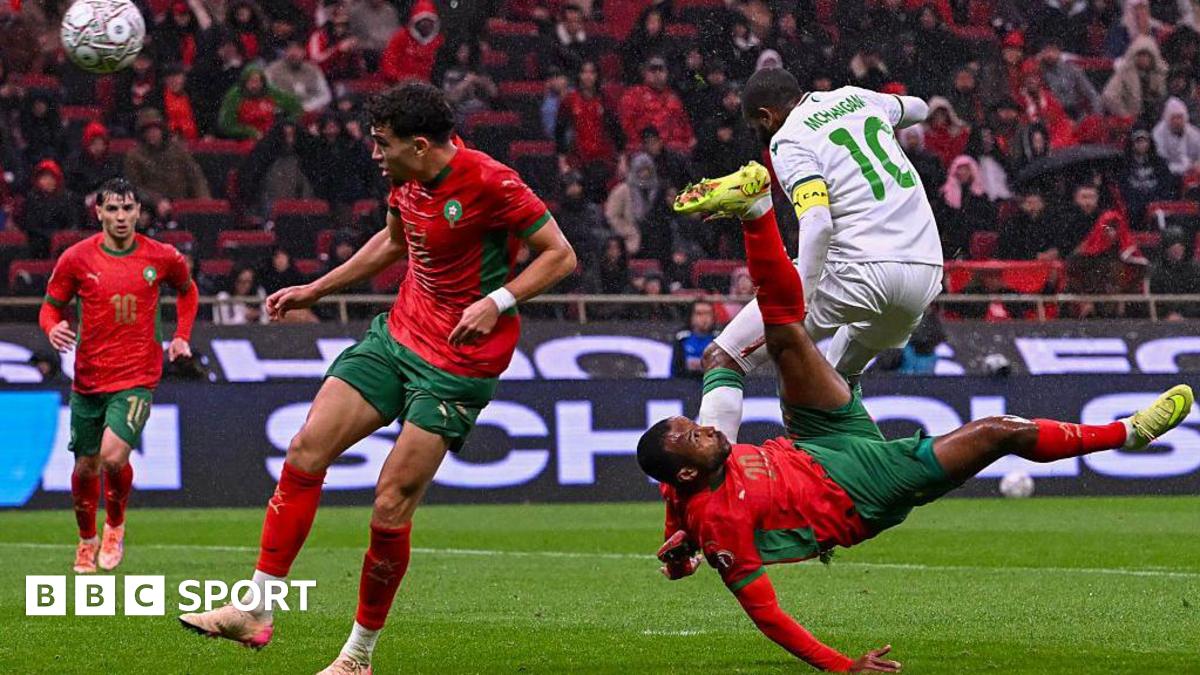Ashleigh Plumptre has enjoyed a lot of success in her brief time with Nigeria, but being part of the Super Falcons squad has also provided a steep learning curve.
Yet, for the Leicester City defender, the focus on action on the pitch has not allowed her to reflect on her achievements.
“It still hasn’t really sunk in about the World Cup,” she told BBC Sport Africa.
“I never thought I would play in a World Cup, whether it was with England or Nigeria. I never thought it would be a thing.
“I remember watching the England Under-20s at the World Cup when I was about that age. I wasn’t thinking that would be me one day, and here we are. Crazy!”
Like several other African internationals, Plumptre represents a country of her parents’ heritage – in her case the country of her father – rather than the country of her birth.
But, unlike most, she made the conscious decision to commit to the Super Falcons and approached the Nigerian Football Federation herself.
“I always have to do something for a purpose,” the 24-year-old said.
“I’m somebody who is a bit different in football because I don’t just play to play it. I have to do it for a reason.
“When we won the league with Leicester I sat down with my dad and said ‘This is something I want to do’. It was actually my dad, who is my agent, who got in contact with Randy (Waldrum, head coach of the Super Falcons).”
Joining the Super Falcons
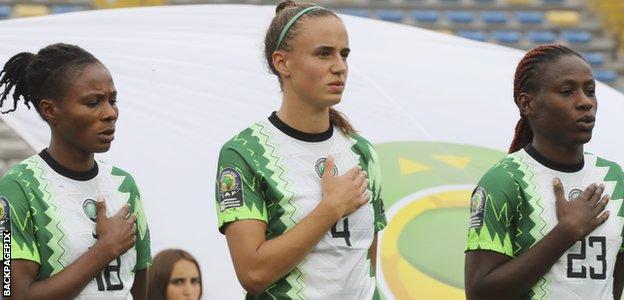
However, changing allegiances from England to Nigeria was not without its challenges.
Plumptre recalls going to the Nigerian embassy in London to start a process that would take more than three months and multiple trips from her father Tim to the embassy and back.
Once her passport and international clearance had come through, she then faced the challenge of integrating herself into a squad which is used to success.
“I was super, super nervous for the first camp because I had no idea what to expect,” she said.
“There’s not been anyone on the team that’s like me, in terms of being from England and looking how I do.
“I didn’t know how some of the team would take me, but everybody was really, really welcoming. Especially after my initiation. Obviously dancing and singing is a big part of the culture and I had to throw myself into it even though I was dreadful.”
She can laugh now as she reflects, because since that first camp she has not looked back.
Her attitude, and throwing herself into everything Nigerian, has seen her welcomed by team-mates and become a fans’ favourite.
She has also experienced another side of women’s football – the struggle to be paid allocated allowances and bonuses as she participated in a boycott of training last week.
However, Plumptre, who spent time in the USA like many of her fellow squad members for college, loves the positives elements of being in the Nigeria squad which throw her out of her comfort zone.
“When we enter into a stadium, we are always singing, dancing and that really helps with relieving the pressure a little bit,” she said on the differences between playing in England and Nigeria.
But when asked if she could bring that back to her club side, Plumptre laughed.
“I don’t feel like at Leicester they would be open to that.” she added.
“In England people are generally a bit more like, ‘Oh I’m not good, oh it’s new.’ I can try, but I can’t imagine how many people will join in.”
Adapting to a new position
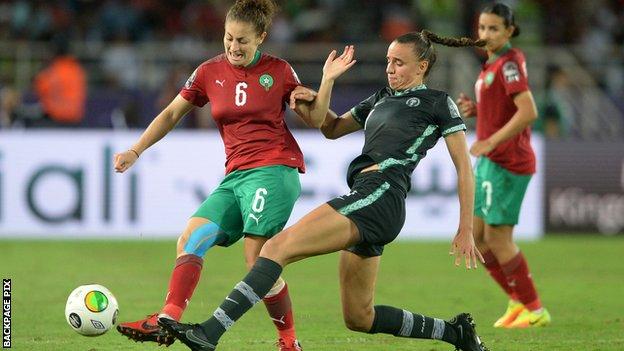
Plumptre’s learning is not restricted to culture, but also to football – namely the fact that at Wafcon she played all but one match as a left-back, despite never having played there previously.
“I lack confidence because it was a new position for me at this level,” she said.
“I was like, ‘Oh God, how am I going to do?’. It’s kind of nice sometimes that I get to go forward. As a centre-back you don’t really have that freedom.”
Plumptre is not the only player making her first appearance for a new country at a major tournament.
In the ranks of last-four opponents Morocco was Tottenham Hotspur forward Rosella Ayane, who, like Plumptre, played for England at youth level but has gone on to represent the country of her father.
“We spoke after the last game of the season, we played one another. After the game we kind of said, ‘see you in Morocco’.”
“I knew of her, but we never really spoke. Since the build up to this tournament and during it, we’ve communicated quite a bit. Just encouraging one another.
“When we beat Cameroon (in the quarter-finals), she was like, ‘Well done. See you on Monday’. So now it’s gone from supporting one another to almost being like rivals.”
Ayane came out on top in that encounter, netting the winning penalty in the shootout as the Atlas Lionesses beat nine-woman Nigeria.
For Plumptre, after Nigeria lost the third-placed play-off against Zambia last Friday, her attentions will soon turn to another adventure with the Super Falcons at next year’s World Cup in Australia and New Zealand.

